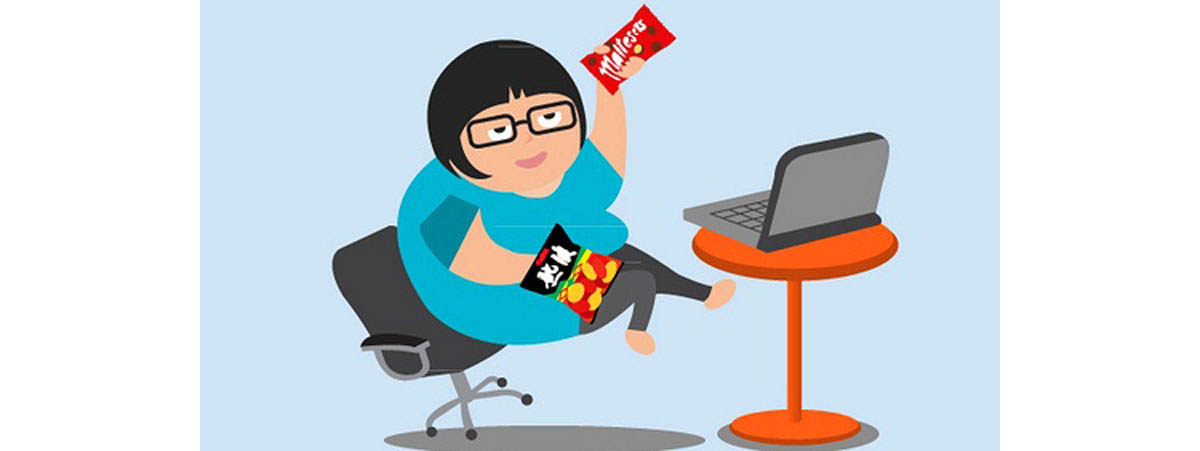Table of Contents
The science behind losing weight is easy.
You simply need to consistently eat fewer calories than you burn, through a combination of reducing your caloric intake, eating healthy foods and exercising, to get to your goal weight. But if it really was that easy, surely everyone would be slim, slender and athletic?

Most peoples’ main issues when it comes to dieting are psychological ones. We can all be good with our diets and training for a day or two is not that hard either, but soon enough, temptation comes along and demotivation sets in. Once that happens, unless you're exceptionally disciplined, you’ll off the wagon and back to square one in no time. Many "losers" even gain back more than they lost, leading to an even higher BMI at the end of their weight loss efforts.
A prime example of this is in the workplace.
You can be as good as you like. If you’re serious about losing weight, and prepared to do everything you need to do, then you probably cook your meals from scratch and make a healthy lunch before work in the morning, or the night before. You make sure your desk is filled with diet-friendly snacks, and either go for a walk during your lunch hour, or have your training clothes in the car, ready to hit the gym straight after work finishes.
With all this in place, you should be on to a winner. Unfortunately though, it’s not always that straightforward. Losing weight when you’re in control of your own day, have little contact with anyone else and can generally do as you please is easy. When you’re at work though, it’s a different matter.
What stands in the way of achieving your weight loss goals at work?
Potential Weight Loss Barriers at Work
Colleagues
Colleagues are by far the number one reason you’ll gain weight at work. They’ll fall into one of three categories:
- Some colleagues will be really supportive of what you’re doing, and may even be trying to lose weight, or get into the healthy lifestyle themselves. These people are your perfect companions when dieting at work.
- Others won’t care one bit about their own health, and likely won’t care about yours either. They’re not the easiest people to be around if you want to avoid temptation, as they’ll be stuffing their faces with candy, chips and junk food all day. But so long as you can get past this, you should be okay.
- The final group are the worst. These colleagues will usually have been on a diet in the past, and failed, and now want to see you fail too. They’ll try to tempt you with any food that’s around the office, or make fun of you for doing what you’re doing. Ignore them. They’re just trying to bring you down so they can feel better about themselves for being out of shape and unfit. Stick with your plan, and don’t succumb to temptations.
Office Parties, Birthdays and Vending Machines
Even without colleagues, it can be hard to stick to your diet when there are so many occasions where high calorie junk food is on offer.
Office vending machines are the worst culprits. They’re staring you in the face for eight or nine hours a day, just willing you to give in and spend your change on a tasty treat that will wreck your hard work. If you've been extremely busy and haven't eaten for hours, the vending machine may offer the only food in sight. This food is high in calories and close to zero in nutritional value, and it will sabotage your weight loss efforts while still leaving you hungry.
Late meetings can often involve pizzas or Chinese takeout. No one else can be bothered to bring their own food, and they’re not too fussed about their health, so they pick up the phone and call the nearest provider of grease-laden, salt-filled, high sugar, high fat food – if you can even call it that.
There’s an unwritten rule in many offices that when it’s someone’s birthday, there must be cake. This isn’t too bad if you work in a small time, but in a big firm, it’s a nightmare, with birthdays cropping up a few times every week. Three servings of cake each week can easily add a couple of thousand calories to your weekly intake.
- “Cortisol Connection: Tips on Managing Stress and Weight”. by Christine A. Maglione-Garves, Len Kravitz, Ph.D., and Suzanne Schneider, Ph.D.. Accessed on August 13, 2012 Retrieved from http://www.unm.edu/~lkravitz/Article%20folder/stresscortisol.html
- Photo courtesy of slworking on Flickr: www.flickr.com/photos/slworking/5242156451
- Photo courtesy of ruthtsang on Flickr: www.flickr.com/photos/ruthtsang/6840416484

